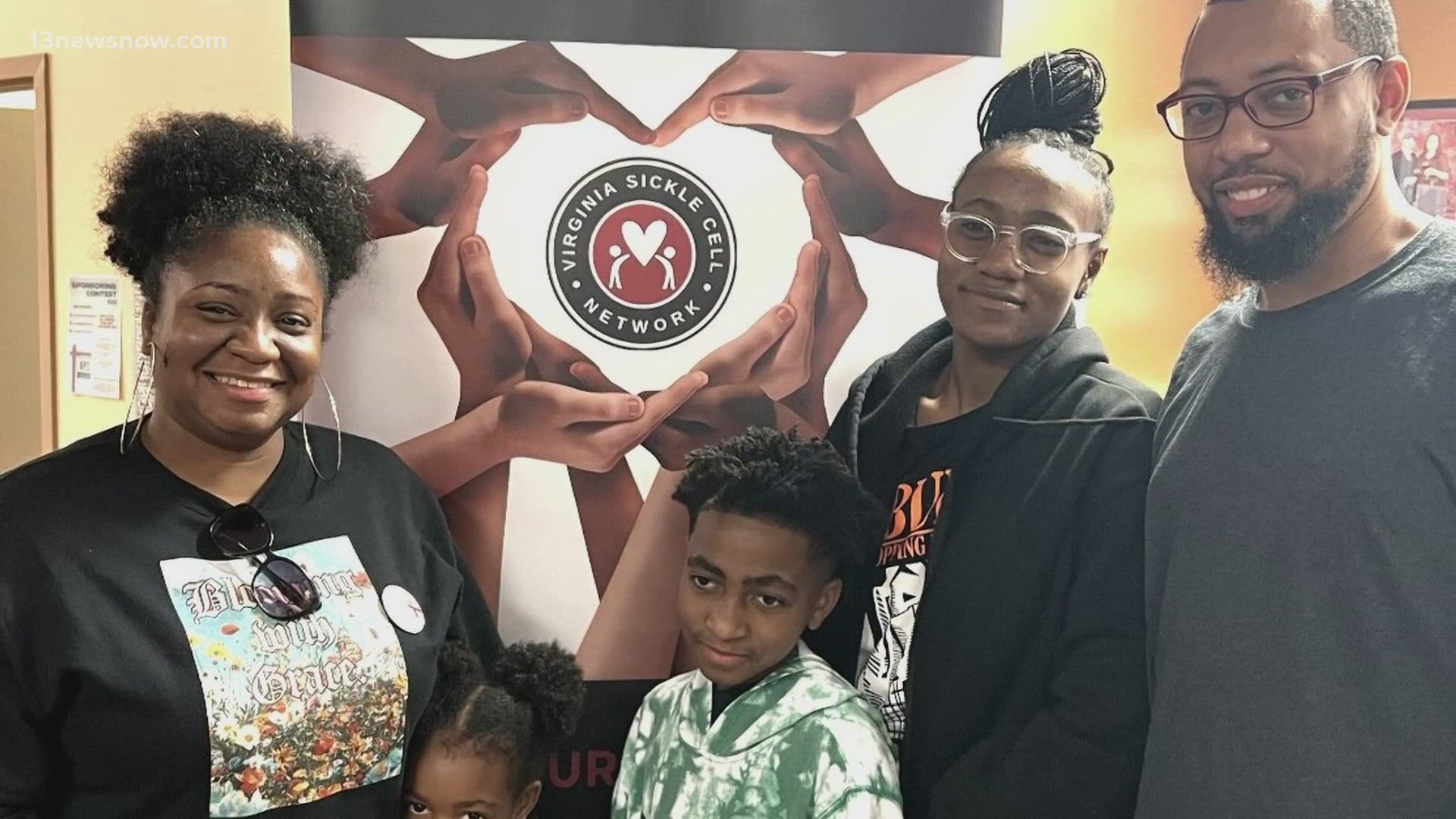NORFOLK, Va. — Two of Khristina Reid's daughters were born with sickle cell disease, a chronic genetic condition that affects the shape and movement of red blood cells. They can block blood flow, leading to pain, infections, and even organ damage.
"That [diagnosis] prompted me to go into as much research as I possibly can, to learn as much as I can, to be as well informed and advocate as much as I can for my girls," Reid said. "I felt desperate for community. I wanted to know who else's child, or... who is an adult who has sickle cell disease who is thriving and doing well? So, I was desperate to gain as much information as I possibly could about sickle cell disease."
She founded the Virginia Sickle Cell Network-- a nonprofit that provides education, advocacy, and support for affected people and families-- after years of helping her daughters manage the complexities of the disease.
"At one point, we were in and out of the hospital with both, because... childhood illnesses, like colds, affected them," Reid said. "And then, you add on doctor appointments, and the length of it. And there was burden of disease pretty early on for both of my girls."
Sentara Health and Macon & Joan Brock Virginia Health Sciences EVMS Medical Group at Old Dominion University are launching the Comprehensive Sickle Cell Program to improve the quality of care. This comes just months after EVMS and Old Dominion University completed their merger, working together to expand programs and address local health disparities.
The program will bring together specialists in internal medicine, hospital care, pain management, and psychiatry all in one place. Reid said it could be pivotal for some marginalized groups.
"Sickle cell disease is not just a Black person's disease. However, it primarily affects Black people," Reid said. "There's health equity that is not balanced. So, we are excited because the people who are underinsured, the people who may not have the education or their [socioeconomic] status is different from others with other complex diseases, access to care is there."
She pointed out some of the barriers to care for sickle cell patients that the new clinic claims to address, like limited access to specialized healthcare providers for symptoms like severe pain.
"A person who may be underinsured does not have a primary care physician or, specifically speaking, a hematologist, a specialist who is specifically caring for the sickle cell disease management. They would go to the emergency room [and] normally are not seen for hours," Reid said. "So, if we have this home and it’s a successful program that grows... they are not having to go to the emergency room for care. They are able to go to their specialist, who can give the treatment that they need before it gets too bad."
The clinic will also customize treatment plans, addressing the physical, which Reid called a big step in offering care that is multifaceted and compassionate.
"It’s a complex disease. So, just knowing that these healthcare providers and community workers have chosen to only work with this demographic, it just means that we are coming in knowing that we are seen, we are heard, we are believed, we're not stigmatized in this area, and that’s a home," Reid said. "That’s a home that makes us feel valued. It makes us feel like a whole person. So, this is big."
She noted that more people are living with sickle cell disease in Hampton Roads than in any other area statewide. Reid said the new program could greatly improve their outcomes.
"We are looking for the success of this program because that means the 65 children who are born in the state of Virginia annually and diagnosed with sickle cell disease have care that is quality for them from birth through the duration of their lives," Reid said.
The grand opening of the Sentara-EVMS Comprehensive Sickle Cell Program is set for October 9 at 6 p.m. Click here to learn more about the new clinic and its services.

